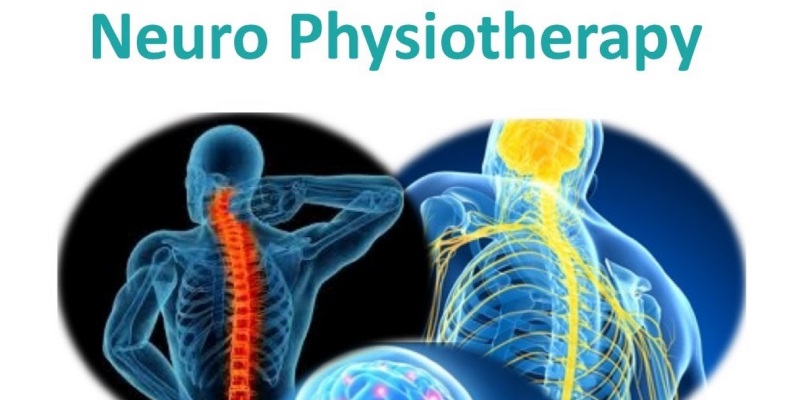Neuro Physiotherapy: What Is It & How Does It Work?
Motor function and mobility of joints, muscles, and tendons are commonly restored by physiotherapy for those with impairments due to sickness or accident. Rehabilitation is aided by preventing muscular atrophy and loss of function brought on by inactivity.
Neuro physiotherapy at a top neurology hospital is focused on helping patients regain motor and sensory abilities lost due to neurological illness or damage.
What Does The Term “Neurological Physiotherapy” Refer To?
To put it simply, neurological physiotherapy is helping patients whose difficulties with movement and function result from issues with the nerve and neuromuscular systems of the body. Muscular weakness, imbalance, poor coordination, tremors, involuntary muscle spasms, loss of function, and diminished feeling are common symptoms of these diseases.
Repetitive movements and exercises used in neurological physiotherapy may help your brain re-establish communication channels it is having trouble using. Patients who receive Neurological Physiotherapy often see a reduction in symptoms like stiffness and discomfort, as well as an improvement in their ability to walk, stand, and use their hands and feet. It’s a way of ensuring that the person with the disability has a say in planning and achieving outcomes that matter to them.
How Does It Work?
Medications, physical therapy, speech and swallow therapy, psychological therapies, occupational therapies, and teaching or re-training patients in mobility skills, communication processes, and other aspects of that person’s daily life are all part of Neurorehabilitation’s broad focus on restoring a patient’s functional independence and well-being. Nutritional counseling, mental health services, and therapeutic arts are all part of neurorehabilitation.
To provide their patients with the best possible care, many neuro-rehabilitation programs (run by hospitals and independently as specialized clinics) employ many experts in a broad range of professions. Over time, and frequently for the rest of a person’s life, these therapies make it feasible for them to lead as daily and independently a life as possible.
What Kinds Of Illnesses Benefit From Neuro Physiotherapy Treatment?
Neuro physiotherapy effectively treats any neurological disorder that causes mobility and functional impairments. The following are just a few such scenarios when this comes in handy:
- Stroke
- Head trauma/traumatic brain injury
- Paralysis or paralysis due to a damaged spinal cord
- Sclerosis multiple (MS)
- A degenerative disorder of the nervous system known as Parkinson’s
- Facial paralysis, also known as Bell’s palsy
Motor impairments, paralysis, tremor, spasm, ataxia, and loss of feeling are all possible outcomes, depending on the underlying medical condition. This is because the symptoms of neurological diseases may be brought on by injury to the central nervous system, which can break down the afferent and efferent channels transporting nerve impulses to and from muscles and organs.
Why You Must Visit A Neuro Physiotherapy Specialist?
Physical therapy for neurological rehabilitation focuses on stimulating the nervous system via therapeutic activities and exercises to facilitate the development of new motor skills. Each patient receives care tailored to their ailment or injury to restore or enhance their cardiovascular health, muscle strength, range of motion, balance, and coordination. Physiotherapists at the best physiotherapy hospital not only advise on how to make your home and workplace more accessible and user-friendly but also how to help you live more independently and productively despite your condition.
A few examples of possible advantages are:
- Enhanced Power
By engaging in movement-based strength training, you may restore muscular function lost due to illness or injury. Increases in muscular control and mobility, as well as spasticity management and reduction, are some of the goals of physiotherapy (when muscles continuously contract).
- Maintaining Exertion For An Extended Period
Training or retraining your gait may help you walk more confidently and efficiently on various surfaces and in various situations. It is possible to use mobility aids to improve stability, posture, and freedom of movement. Learning the right way to use these devices may be covered in physiotherapy sessions.
- More Stability
By engaging in balance training, you may increase your stability and self-assurance while walking and doing other daily tasks. The incidence of falls and their associated injuries may be reduced by taking steps to enhance balance.
In Conclusion
As previously said, neuro physiotherapy is intended to aid in rehabilitating physical deficits brought on by neurological diseases. It’s goal-oriented and individualized to fit each person’s unique requirements. Is the patient’s problem more systemic, like learning to walk again, or more granular, like a problem with fine motor skills? On the first appointment, specialized neurological physiotherapists will make this determination.



